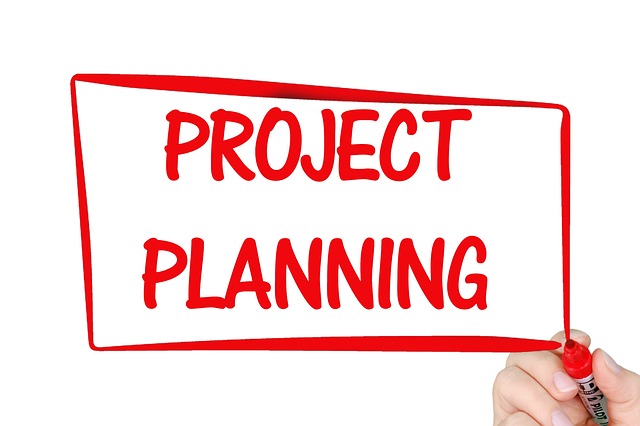Event planning for local businesses within charity events is a multifaceted endeavor that enhances community ties and business visibility. It involves strategic alignment with charitable missions, effective branding, and interactive experiences to engage attendees. These events serve as a platform for businesses to demonstrate corporate social responsibility, which positively affects their image and encourages customer loyalty. Strategic venue selection is critical for event success, offering synergies with local businesses and enhancing visibility. Masterful logistics ensure smooth operations from registration to waste management, creating a lasting impression on attendees and fostering trust in the host organization. Storytelling plays an integral role by connecting participants emotionally with the cause, making the event a meaningful movement. Analytics and feedback are essential for evaluating event success, allowing businesses to refine their strategies for future charitable initiatives. In essence, Event Planning for Local Businesses within charity contexts is a strategic approach that balances community engagement with business goals, ultimately contributing to both societal well-being and business success.
Charity events serve as a confluence of community spirit, strategic marketing, and impactful storytelling. This article delves into the intricacies of event planning for local businesses, highlighting how these gatherings can be expertly orchestrated to amplify community engagement, enhance local business promotion, and leave a lasting impression on participants and beneficiaries alike. We will explore the strategic selection of venues, mastery of logistics, and the art of crafting compelling narratives that not only raise funds but also foster deeper connections within communities. Additionally, we will examine the analytics and feedback mechanisms essential for measuring the success of these events, ensuring they are not just one-off occasions but catalysts for continuous improvement and community support.
- Leveraging Community Engagement: The Role of Charity Events in Local Business Promotion
- Strategic Venue Selection and Logistical Mastery for Successful Charity Events
- Crafting Compelling Narratives: Storytelling Techniques that Elevate Charity Event Impact
- Measuring Success: Analytics and Feedback Mechanisms in Charity Event Planning for Local Businesses
Leveraging Community Engagement: The Role of Charity Events in Local Business Promotion

Charity events serve as a multifaceted platform where community engagement and local business promotion converge, creating opportunities that extend beyond philanthropic endeavors. Event planning for local businesses within these initiatives can significantly amplify their visibility and brand presence. By aligning with charitable causes, businesses tap into the social capital of community goodwill, enhancing their reputation and customer loyalty. These events often attract a diverse audience, providing local enterprises with an expansive stage to showcase their products and services. The strategic integration of local businesses into charity events is not merely about marketing; it’s about building genuine connections with the community. Through sponsorship, participation, or volunteering, businesses can demonstrate corporate social responsibility, which in turn fosters a positive brand image and customer engagement. Moreover, the collaborative nature of such events fosters networking opportunities, allowing businesses to forge mutually beneficial partnerships and alliances that can lead to long-term growth and success.
The role of event planning in this context is pivotal, as it requires a thoughtful approach to weave together the various threads of community engagement, business promotion, and charitable objectives. Skilled planners ensure that each local business involved has a clear and impactful presence at the event. This includes careful consideration of event branding, alignment with the charity’s mission, and the creation of interactive experiences that resonate with attendees. By effectively leveraging charity events, local businesses not only enhance their community standing but also contribute to a noble cause, making these events a cornerstone for socially responsible business practices.
Strategic Venue Selection and Logistical Mastery for Successful Charity Events

When organizing a charity event, strategic venue selection plays a pivotal role in its overall success. Choosing the right location is not merely about finding a space that fits the guest list; it’s about aligning with local businesses to create a synergy that benefits all parties involved. A venue that resonates with the community and has connections to local businesses can enhance the event’s appeal, foster partnerships, and amplify promotional efforts. Moreover, a well-chosen venue can offer logistical advantages such as convenient access for attendees, ample parking, and facilities that support the event’s needs, from audiovisual equipment to catering services. Local businesses often have vested interests in supporting charitable causes within their community, making them ideal partners for providing these essential services at a reduced cost or even as in-kind contributions. This collaboration not only streamlines logistics but also showcases the event’s commitment to local economic development and community support.
Logistical mastery is the cornerstone of executing a successful charity event, ensuring that every detail is meticulously planned and executed flawlessly. This encompasses everything from seating arrangements and registration processes to waste management and emergency plans. Effective logistics also involve coordination with local businesses for services like transportation, security, and catering. By leveraging the expertise of these businesses, event planners can ensure that the event runs smoothly, which in turn enhances the guest experience and reflects positively on all involved. A well-organized event not only facilitates a memorable experience for attendees but also demonstrates the host organization’s capability to manage large-scale initiatives, thereby fostering trust and encouraging ongoing support from both participants and sponsors. The interplay between strategic venue selection and logistical mastery is essential for creating an impactful charity event that resonates with local businesses and the community at large.
Crafting Compelling Narratives: Storytelling Techniques that Elevate Charity Event Impact

Crafting compelling narratives is a pivotal aspect of event planning for local businesses, particularly when organizing charity events. These narratives serve as the emotional glue that connects donors and volunteers to the cause, transforming an event from a mere gathering into a movement. To create narratives that resonate, planners should focus on personal stories that highlight the impact of the charity’s work. By incorporating multimedia elements such as videos or photo essays, these tales gain depth and authenticity, drawing participants into the world of those benefited by the charity’s efforts.
Event organizers can elevate the impact of their charity events by strategically weaving storytelling techniques throughout the event planning process. For instance, utilizing interactive displays or live testimonials allows attendees to engage directly with the stories behind the cause. Additionally, integrating these narratives into marketing materials and social media campaigns ensures that the message is consistent and far-reaching. By doing so, local businesses can demonstrate their commitment to the community, enhancing their reputation and fostering a deeper connection between the business, the charity, and the audience.
Measuring Success: Analytics and Feedback Mechanisms in Charity Event Planning for Local Businesses

When local businesses engage in charity event planning, the success of these events is multifaceted and extends beyond the immediate impact on the cause supported. To accurately measure the effectiveness of such events, it’s crucial to implement robust analytics and feedback mechanisms. These tools allow organizers to assess various aspects, including audience engagement, resource allocation efficiency, and return on investment. By collecting data pre-event, during, and post-event, businesses can gain insights into attendee demographics, preferences, and behaviors. This information is invaluable for tailoring future events to better meet the community’s needs and maximize participation and support.
Feedback mechanisms, such as surveys and follow-up interviews, play a pivotal role in this process. They offer a direct line of communication with participants, volunteers, and sponsors, providing qualitative data that quantitative analytics may overlook. This feedback not only helps in identifying what worked well but also highlights areas for improvement. By analyzing both the objective metrics from analytics and the subjective insights from feedback, local businesses can refine their event planning strategies to ensure that their charity events are not only successful in terms of financial outcomes but also resonate with the community and effectively contribute to the cause they aim to support.
Charity events serve as a powerful nexus where community engagement intersects with event planning for local businesses, fostering mutual growth and impact. The strategic selection of venues and mastery of logistics are pivotal in orchestrating successful charity initiatives. Coupled with the art of storytelling, these events not only amplify their cause but also enhance the visibility and reputation of participating local businesses. Through diligent analytics and feedback mechanisms, organizers can measure success, ensuring continuous improvement and maximizing the benefits for all parties involved. These practices underscore the importance of thoughtful event planning in the charitable sector, contributing to the betterment of communities and the prosperity of local enterprises alike.






